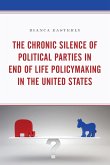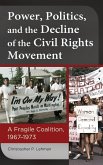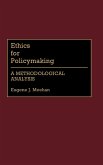Romero examines the extent to which majority American opinion has shaped Congressional and Supreme Court responses to civil rights issues. She provides an institutionally oriented history of civil rights policy as well as an examination of the validity of the blueprint for our national government. In Romero's view, the design of the government, as articulated in The Federalist, was meant to provide a balance between a facilitation of the majoritarian democratic process and protection of the rights of minorities. The struggle for civil rights reform represents perhaps the best modern test of whether the Founders' expectations were valid: Were the Founders correct in assuming that, in their respective consideration of minority rights, Congress would reflect majority preferences while the Supreme Court would remain insulated? After analyzing the shape and direction of public opinion regarding civil rights, Romero examines the congressional record and the record of the Supreme Court. She concludes with a reassessment of the predictions of the Founders as applied to civil rights policy. Of particular interest to scholars and students involved with institutional policy making as well as civil rights issues.
Hinweis: Dieser Artikel kann nur an eine deutsche Lieferadresse ausgeliefert werden.
Hinweis: Dieser Artikel kann nur an eine deutsche Lieferadresse ausgeliefert werden.








